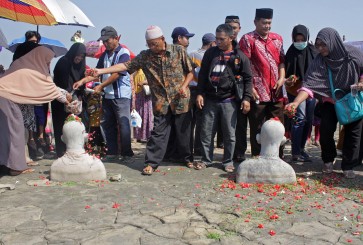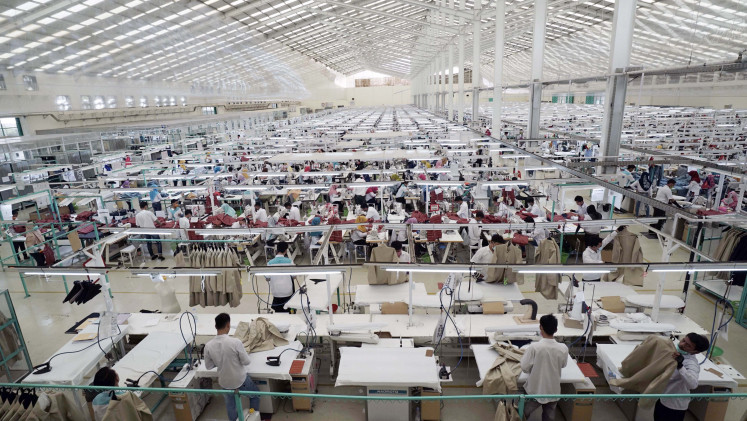Summit needs a binding agreement: Hatta
Indonesia would be satisfied even if the Copenhagen climate summit ends with mere political statements but maintains that rich nations must make clear commitments to finance developing countries to fight global warming, said a state minister
Change text size
Gift Premium Articles
to Anyone

I
ndonesia would be satisfied even if the Copenhagen climate summit ends with mere political statements but maintains that rich nations must make clear commitments to finance developing countries to fight global warming, said a state minister.
State Environment Minister Gusti Muhammad Hatta said it would be very hard to achieve a legally binding treaty although progress had been made with the United States and China pledging to cut emissions.
“But, we must also be realistic, a legally binding treaty is still very unlikely as the United States’ pledge [to cut their emissions by] 17 percent is still far from enough,” Hatta told reporters Monday.
“The ideal output should be in line with the Bali action plan. But seeing the reality, Indonesia will not persist for it. For us, the most important thing is that the Copenhagen talks produce an agreement.”
He said any binding statements should include a clear timetable for a legally binding treaty and emission cuts targets for rich nations.
“All countries must work hard during the next six months to make a legally binding treaty,” he said.
President Susilo Bambang Yu-dhoyono is scheduled to travel to Copenhagen on Dec. 17 and 18.
At least four ministers, namely Hatta, Forestry Minister Zulkifli Hasan, Minister for Fisheries and Maritime Affairs Fadel Muhammad and Energy and Mineral Resources Minister Darwin Z. Saleh, will also attend the conference.
Head of the National Council on Climate Change (DNPI), Rachmat Witoelar, who is the former state minister for the environment, is expected to lead the Indonesian delegation at the conference.
Indonesia has yet to announce all of its delegation members, just a week out from the climate change conference to be held from Dec. 7.
Hatta said Indonesia’s delegates would focus on pushing rich nations to provide funds to developing countries to adapt to climate change.
“Financing sources must be clear in Copenhagen. There must be new sources aside from overseas development assistance [ODA],” he said.
The 2009 World Development Report showed between US$140 billion and $175 billion was needed annually to help developing countries implement mitigation measures to prevent the world from warming by more than 2 degrees Celsius.
The European Union says it needs $100 billion annually to help developing nations fight global warming.
But developing countries say rich countries should contribute between 0.5 percent and 1 percent of their gross domestic product.
The Copenhagen talks have five crucial issues: a new treaty to replace the Kyoto Protocol, which expires in 2012; climate financing, mitigation, adaptation and techno-logy transfer.
—JP/Adianto P. Simamora









